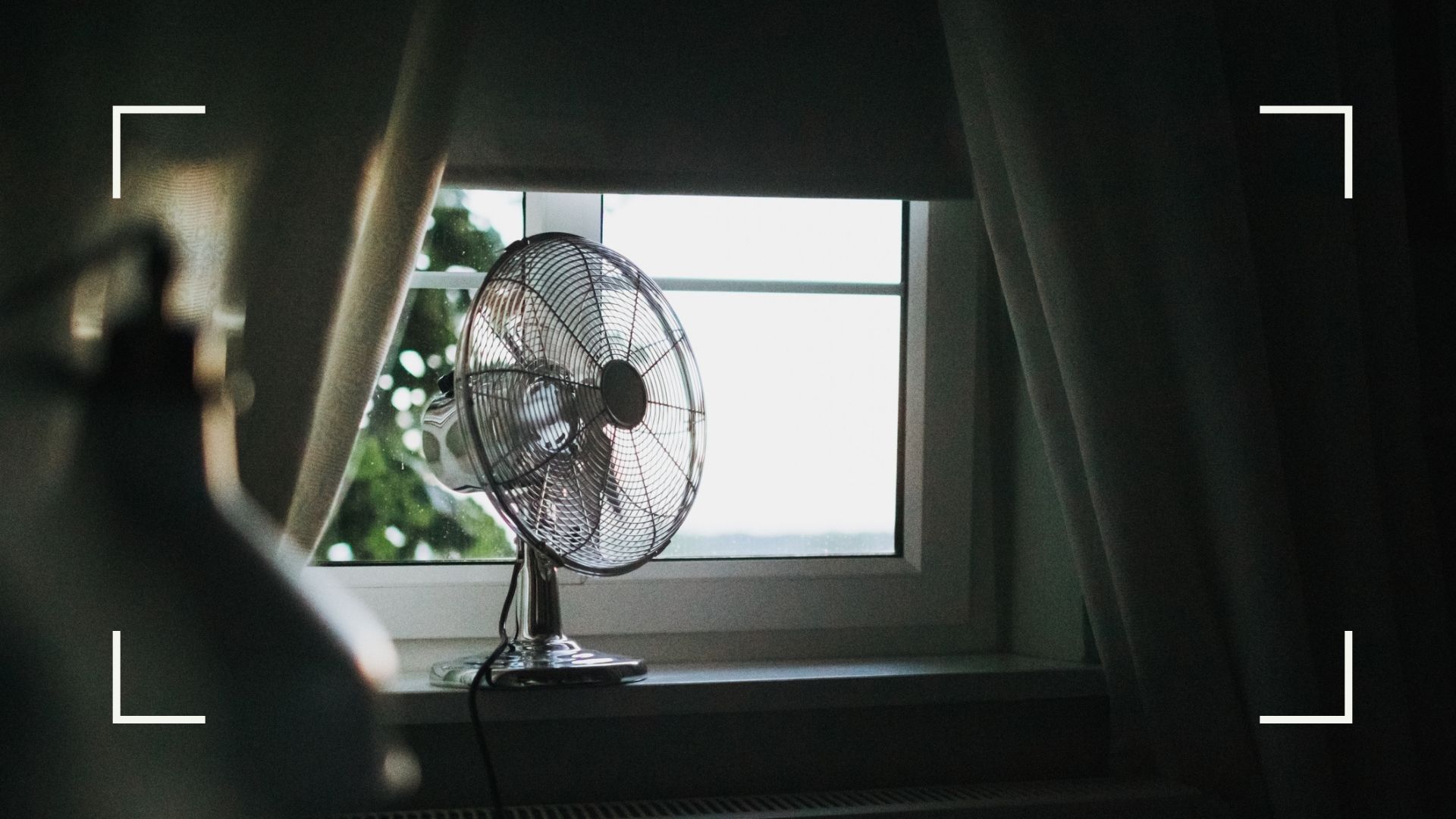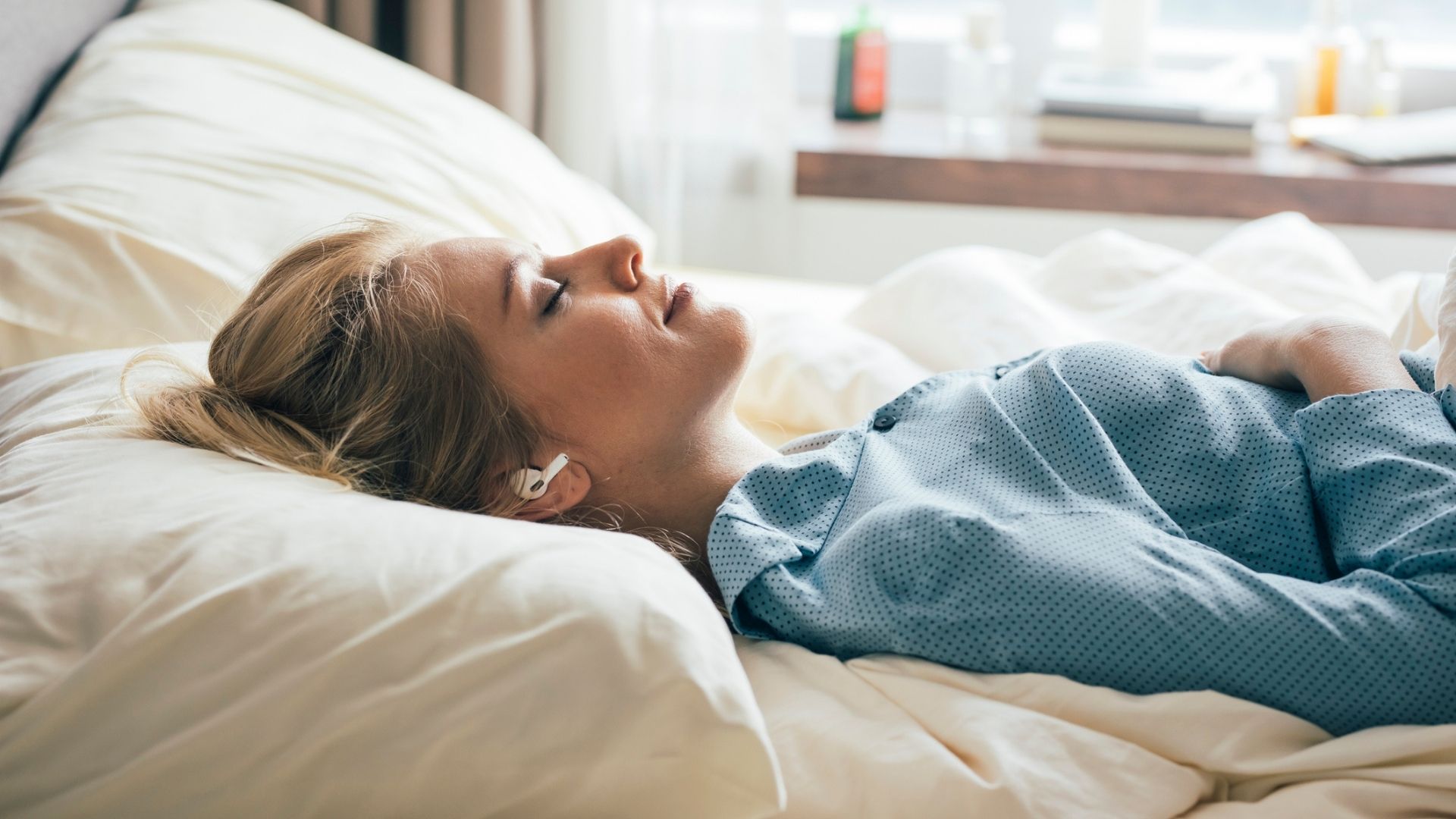Why sleeping with a fan on might actually be bad for you
Sleeping with a fan on seems like a great idea when the weather is so hot, but it may actually be doing you more harm than good


Ever wondered if sleeping with a fan on was actually doing more than keeping you cool? As temperatures start to rise, many of us might be tempted to doze off with the white noise and cool air of a bedside fan.
Sleeping with a fan on is a great way to keep cool if you struggle with how to fall to sleep fast on a hot evening, but there are some negative side effects that come with keeping a fan on while you sleep.
Experts from Sleep Advisor suggest that your fan could be doing more harm than good if you tend to suffer at the start of allergies season or have asthma. They say, "As a fan moves air around the room, it causes flurries of dust and pollen to make their way into your sinuses. If you're prone to allergies, asthma or hay fever symptoms, this could stir up a whole lot of trouble."
When a fan is left to get dusty, it essentially becomes a transportation device for all the dust, pollen, skin cells and dirt to travel around the room and into your airways.
However, as long as you regularly change the filters in your fan and ensure that dust isn't blocking up the blades, you should be fine.
Another key issue, Sleep Advisor explains, is that sleeping with a fan on all night can leave you with aching muscles in the morning. When the fan is directed straight at your body, the "concentrated cool air can make muscles tense up and cramp."
To avoid this, it's a good idea to direct the fan away from your body while you sleep and just allow the cool air to circulate around the room, instead of being focused on your bed.
Sign up for the woman&home newsletter
Sign up to our free daily email for the latest royal and entertainment news, interesting opinion, expert advice on styling and beauty trends, and no-nonsense guides to the health and wellness questions you want answered.
Can sleeping with a fan on damage your skin?
Yes, shockingly, sleeping with a fan on at night can actually dry out your skin. Sleep Advisor say that the dry air circulating in your room can have a negative effect on your skin and cause it to dry out.
“A constant blast of air on your body may cause dryness and flakiness. Lotions and one of the best moisturizers for dry skin will help prevent this, but if your skin is excessively dry, use caution and monitor your skin to make sure you’re not over-drying it.”
The best way to combat this issue is to add more moisturizer to your night time regime so that your skin can retain moisture even if there is a lot of dry air circulating.
Can sleeping with a fan on give you a cold?

Sleeping with a fan on can increase your chances of getting a cold if you are sleeping in a bed with someone who is under the weather. As fans encourage air circulation, it is more likely that the germs from your sleeping partner will be transferred to you, Sleep Advisor says.
Fans can also cause more irritation if you are already under the weather. If you sleep with your mouth open, then a fan can cause your mouth to dry out which can cause irritation and discomfort. This also applies to your nasal passages which can dry out and cause discomfort.
Sleep advisor suggests that there is an easy way to reduce this risk. They say, “One way to minimize this risk is to use a fan that rotates rather than one that blows a steady and unrelenting flow in one concentrated area all night.” This means that your mouth and nose will be able to retain moisture during the night.
Research by University of Texas Southwestern Medical Center found that sleeping with a fan on can make you feel unwell in other ways though. They found that combining a water-soaked t-shirt, as is commonly worn in very hot climates, with an electric fan didn't change heat transfers from the body. But it did exacerbate sweat loss, opening up a bigger potential for dehydration.
Are there benefits to sleeping with a fan on?
Yes, there are many benefits to sleeping with a fan on. Fans have been proven, as new research published in The Lancet shows, to be effective at regulating body temperature up to 39°C. This means that many people can fall asleep fast at night, rather than tossing and turning in the heat.
After the room temperature goes over this point, however, they've been shown to worsen heat stress as they essentially just push warm air around the room.
Sleeping with a fan on can also be a useful source of white noise, which one study from Queen Charlotte's Hospital shows, encourages people to fall asleep as it drowns out the sound of other noises that might crop up when you're sleeping—like birds chirping early in the morning.
To a lesser extent, the experts at Sleep Advisor explain, another benefit of sleeping with a fan on is that the air circulation around the room improves. "When someone goes to bed with their windows and doors closed and no fan on, the room can smell stagnant the next day as the sleeper's breath fills the room. A fan can keep the air circulating and smell fresher."
Laura is the Entertainment Editor for woman&home who primarily covers television, film, and celebrity news. Laura loves drinking and eating and can often be found trying to get reservations at London's trendiest restaurants. When she's not wining and dining, Laura can also be found travelling, baking, and hiking with her dog.
-
 Davina McCall says entering perimenopause was 'terrifying and lonely' - and it left her 'furious' at her lack of knowledge on the subject
Davina McCall says entering perimenopause was 'terrifying and lonely' - and it left her 'furious' at her lack of knowledge on the subject"I know nothing. This is so insulting."
By Charlie Elizabeth Culverhouse Published
-
 Clodagh McKenna shares her 'one-minute practice' that 'really works' to clear and calm the mind
Clodagh McKenna shares her 'one-minute practice' that 'really works' to clear and calm the mindClodagh McKenna uses simple meditation to find calm, with a handy ‘one-minute practice’ helping to settle her racing thoughts.
By Charlie Elizabeth Culverhouse Published